Halal Industry Master Plan 2030
von Muhamad Syafiq

1. Key Enablers
1.1. Key enablers are put in place to support smooth implementation of HIMP 2030. The keys are consist of 5 aspect which are Halal Traceability Service, talent development, standards, Islamic finance, and logistics services.
2. Majlis Pembangunan Industri Halal
2.1. Majlis Pembangunan Industri Halal (MPIH) plays a role to improve governance structure in the development of the Halal industry by focusing on four key success areas. 1 : Formulate Strategic Policy and Monitoring; 2 : Certification Enhancement and Enforcement; 3 : Standard Development and Traceability; 4 : Industry Development and Entrepreneurial Culture.
3. Technology
3.1. The vast number of upcoming technology such as Financial Technology (Fintech), Internet of Things (IoT), Big Data, Blockchain and Industry 4.0 have huge potential to further improve Malaysia’s Halal Industry
4. Super Catalytic Initiatives
4.1. 5 were identified as Super Catalytic- large-scale transformative initiatives benefiting industry players at all level aimed at shifting the trajectory of the Halal industry’s growth, and significantly advancing a broad cross-section of the industry.
4.2. One of 5 catalyzer is Halal advancements in Bumiputera Business
5. Halal Ecosystems
5.1. The HIMP 2030 focuses on strengthening and internationalising Halal ecosystem in Malaysia by re-evaluating and improving existing initiatives, as well as introducing high impact initiatives in line with the Government’s direction.
6. Objective HIMP2030
6.1. Re-evaluate and improve existing plans
6.2. Re-align with aspirations of the Malaysian Government
6.3. Address unsettled issues and challenges
6.4. To achieve a more substantial contribution to Malaysia’s socio- economy
7. Strategies Framework
7.1. 7 Strategic Thrusts of HIMP 2030 aim to encourage quality, innovative and competitive Halal industry offerings; develop high –performing home grown enterprises; and spur sustainable, balanced and inclusive socio-economic growth.
7.2. One of the strategy is enhancing Halal Industry-friendly Policy and Legislation.
8. Emerging Sectors
8.1. Emerging opportunities in the Halal industry include new economic sectors which are increasingly embracing Halal values in their operations.
8.2. New sectors such as Modest Fashion, Medical Tourism, and Medical Devices.


